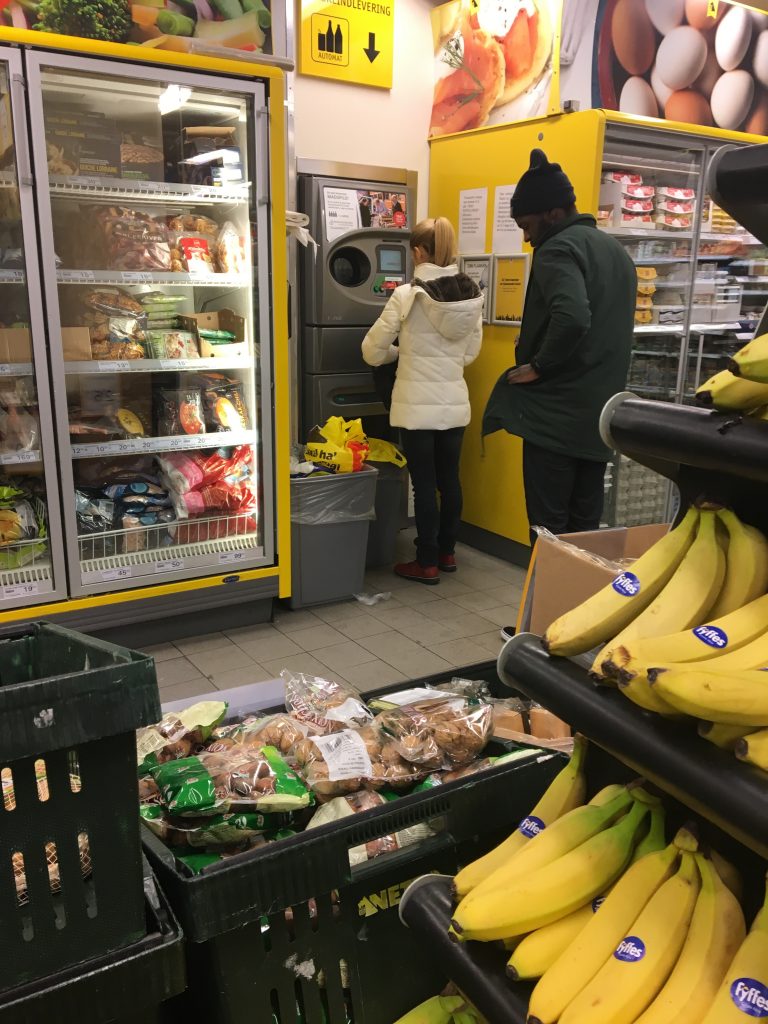The recycling culture of Copenhagen is one of ease and encouragement. When first meeting the Danish students who would be living with me, they mentioned the competition over who gets to turn in the recyclables. I thought this was strange because at home, taking the recyclables to the correct bin is something that is very undesirable between my roommates and I. Objects like metal cans and wine bottles are less trendy than soda cans and plastic bottles, meaning that they must be put in separate bins. Ours were located in the back of our apartment building along with containers for heavy metals, batteries, and electronics. The real competition, however, came with the thin aluminum (soda) cans and plastic bottles. Consumers are able to take these directly to the grocery store and trade them in for cash, which comes in the form a receipt which can be applied to your purchase in the store.
Above are photographs of a can and a bottle. If you see the Pant A, B, and the not pictured C, you are able to take them directly to the store and receive reimbursement. Pictured below is the machine. You simple insert the can bottom-side first and the machine will count one at a time for each can. Some cans even get you a single Danish Kroner – about 15 cents – per can. Often times my roommates and I collected enough cans and bottles over the week that we would have enough money to buy wine and other treats after turning them in.
Another unique aspect of this system is its effect on poverty. At any type of public event, it was very common to find people working to collect cans and bottles from tourists (who normally would not know to come trade them in and the bottles and cans would just end up as trash). This ensured that little to no litter was left on the ground after public events and that many of the cities’ poorer and impoverished residents would be able to purchase food. A consumer culture in which recycling not only benefits the environment, but monetarily benefits the consumer, created what seemed to be a community with a high desire to ensure that a majority of their waste was recycled.



